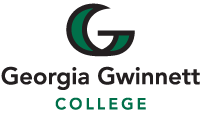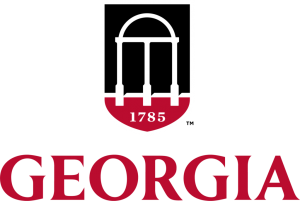There are hundreds of affordable bachelor’s degrees in Georgia for students seeking entry-level positions in every industry. As one of the original 13 colonies, Georgia is home to some of the oldest postsecondary institutions in the U.S. More than 150 universities and colleges are scattered across the state, including 26 higher education institutions in the University System of Georgia and 22 schools in the Technical College System of Georgia. From small religious colleges to esteemed private schools and large state institutions, Georgia offers academic experiences and educational programs for every interest and career goal. Georgia is also often ranked as being among the most affordable states for pursuing higher education. In fact, 80% of the colleges and universities listed below feature one-year, in-state tuition rates under $10,000.
Featured Programs
This blend of affordability and quality is what make a best value school. After all, your ultimate goal as you begin the process of searching for a program is to find a school that offers the academic options and resources you need without draining your wallet. Using a specific set of ranking methodology, we developed the following list of the most affordable bachelor’s degree colleges in Georgia. It’s based on:
- the average cost of attendance
- student/faculty ratios
- graduation rates.
Methodology
The goal of this ranking was to award points based on three core metrics related to:
- class size
- student success
- affordability
This helps to identify the most affordable bachelor’s degree colleges in Georgia. There are hundreds of on-campus and online programs offered at large state universities and small private colleges throughout the state. Narrowing down degrees based on your professional goals and academic needs can be time-consuming. For this reason, we compiled a list of the top 20 institutions of higher learning, using data compiled from the National Center for Education Statistics (NCES) and each school’s website. We conducted a search for the term “colleges in Georgia” using the College Navigator tool at the NCES and double-checked each school’s website to ensure the information we were providing was accurate for the year we did the rankings.
Average Cost of Attendance
For most students considering a bachelor’s degree college in Georgia, the average cost of attendance is likely one of the first things they look at in a prospective program. As you conduct your research, keep in mind tuition rates, but also consider what you are looking for in a program. In many cases, the most expensive private schools may lack in some areas, while the most affordable public universities offer everything you are seeking in an academic experience and more. Avoid basing your decision solely on tuition. Instead think of the cost as one piece of the bigger puzzle. For the purpose of the following list, we ranked schools based on the cost of tuition for one year of study for in-state students completing a 15-hour course load per semester. We also provided the cost of out-of-state enrollment for your reference.
Points:
Under $7,500: 3 points
$7,500 to $15,000: 2 points
$15,001 and above: 1 point
Student/Faculty Ratio
Although we can use enrollment numbers to gain a better understanding of each school’s size, another useful factor to consider when thinking about class size is that of the student/faculty ratio. This ratio is more specific than enrollment data as it indicates exactly how many students there are per faculty member, which can be useful if you are deciding between a small private college or a large state university. Keep your own academic background and personal priorities in mind and ask yourself if you thrive in the hustle-and-bustle of large classes with opportunities for concentrations or areas of study. Or do you learn better in small environments with opportunities for mentoring, one-on-one advising, and individualized studies. The following ranking awards the most points to institutions that report low student-to-faculty ratios of 10 or fewer students per faculty member.
Points:
10:1 or less: 3 points
11:1 to 15:1: 2 points
Greater than 15:1: 1 point
Graduation Rate
Finally, the graduation rate was the last metric by which we ranked schools. The admission rate is helpful for determining selectivity and the chance of being accepted into a program. The graduation rate is useful for determining how many students actually graduate with their degree which is, ultimately, the goal. Before you spend time and money on your education, you want to ensure that the program you are pursuing is considered favorable by recent graduates. In other words, high graduation rates likely mean that students were satisfied with their education and thus continued with the program to the end. These schools might have offered generous financial aid awards, an affordable program, expert faculty members, or academic support via mentoring or advising. Therefore, we determined that colleges and universities with the highest graduation rates deserved the most number of points based on the following ranges.
Points
More than 50 percent: 3 points
Between 30 percent and 50 percent: 2 points
Less than 30 percent: 1 point
Ranking Top 20 Best Affordable Bachelor’s Degree Colleges in Georgia
20. Fort Valley State University
Fort Valley, Georgia

Points: 5
School Website
Established in 1895 Fort Valley State University is a public HBCU and a member of both the Thurgood Marshall College Fund and the University System of Georgia. As an HBCU, 91.5 percent of its student body is African-American. The school sends more African-Americans to dental and medical graduate programs than any other Georgia state school. FVSU enrolls more than 2,700 undergraduate and graduate students in more than 50 degrees offered through its:
- College of Education
- College of Arts and Sciences,
- College of Agriculture, Family Sciences, and Technology.
The school is best known for its teaching and engineering programs, both of which prepare students to seek certification in their respective fields. Most notably, its Real Men Teach initiative recruits African-American males to pursue in-demand education careers.
In-State Tuition: $6,658
Out-of-State Tuition: $19,738
Student/Faculty Ratio: 17:1
Graduation Rate: 26 percent
19. Valdosta State University
Valdosta, Georgia

Points: 5
School Website
Valdosta State University is one of four institutions that make up the University System of Georgia. It enrolls more than 11,000 undergraduate and graduate students each year. VSU offers affordable degree programs through five undergraduate colleges as well as a graduate school. Popular majors include:
- psychology
- journalism and communication
- education
- health professions
- business, management, and marketing
Most recently, VSU was approved to offer a Bachelor of Science in Engineering Technology. VSU also offers a number of transition programs such as first-year learning communities to help incoming freshmen adjust to college life. In FLCs, 22 to 25 first-semester college students are linked together based on their area of residence, a particular theme, or the major they are pursuing . They are therefore able to connect over their shared love of:
- leadership
- the military
- education
- sports
- other common interests.
In-State Tuition: $6,410
Out-of-State Tuition: $17,196
Student/Faculty Ratio: 20:1
Graduation Rate: 37 percent
18. Savannah State University
Savannah, Georgia

Points: 5
School Website
Savannah State University is the oldest HBCU in the state and a member of the Thurgood Marshall College Fund. The school is comprised of:
- College of Liberal Arts and Social Sciences
- College of Business Administration
- College of Education
- College of Sciences and Technology,
The university offers affordable bachelor’s and master’s degrees to more than 4,400 students each year. Some of SSU’s most popular majors include:
- political science and government
- journalism
- business administration and management
- biology and biological sciences
- protective services
It also offers programs in protective services such as:
- firefighting
- law enforcement
- homeland security
The school maintains small class sizes with a student/faculty ratio of 17:1.Many faculty members hold terminal degrees in their respective fields.
In-State Tuition: $5,743
Out-of-State Tuition: $16,204
Student/Faculty Ratio: 17:1
Graduation Rate: 28 percent
17. Georgia Gwinnett College
Lawrenceville, Georgia

Points: 5
School Website
Established in 2006, Georgia Gwinnett College is a public college and a member of the University System of Georgia. From an initial enrollment of more than 100 students in 2006 to more than 12,000 in 2018, its student body has grown rapidly. GGC offers 17 low cost programs of study with more than 45 concentration options, including undergraduate degrees in:
- business administration
- cinema and media arts production
- education
- exercise science
- information technology
- human development and aging services
- nursing
- political science
Students may participate in more than 160 registered student associations and develop their skills in:
- assessment
- leadership
- project execution
- decision-making
- collaboration
- critical thinking
- communication.
In-State Tuition: $5,634
Out-of-State Tuition: $16,348
Student/Faculty Ratio: 18:1
Graduation Rate: 15 percent
16. Georgia Southwestern State University
Americus, Georgia

Points: 5
School Website
Georgia Southwestern State University is a member of the University System of Georgia. It offers affordable undergraduate, graduate, and specialist degree programs. Established in 1906, GSSU is comprised of:
- School of Education
- School of Computing and Mathematics
- College of Arts and Sciences
- School of Business Administration
- College of Nursing and Health Sciences
On-campus, online, and hybrid programs are available, allowing students to build their schedule according to their availability and individual needs. From honor societies to athletic teams to major-related groups and clubs, there is no shortage of student services and opportunities to connect with others.
In-State Tuition: $5,381
Out-of-State Tuition: $15,842
Student/Faculty Ratio: 17:1
Graduation Rate: 25 percent
15. University of North Georgia
Dahlonega, Georgia

Points: 5
School Website
The University of North Georgia is one of the newest institutions of higher learning in the state. It was established in 2013 when Gainesville State College merged with North Georgia College and State University. UNG enrolls more than 18,000 students pursuing affordable associate and bachelor’s degrees in more than 100 areas of study across its five campuses. Popular majors include:
- marketing
- psychology
- management
- nursing
- biology
As one of only six senior military colleges in the country, UNG is designated as The Military College of Georgia as well as a State Leadership Institution. UNG places a strong emphasis on service, integrity, and leadership. More than 750 students enroll as cadets.
In-State Tuition: $4,692
Out-of-State Tuition: $13,514
Student/Faculty Ratio: 19:1
Graduation Rate: 29 percent
14. Dalton State College
Dalton, Georgia

Points: 5
School Website
Dalton State College is a public college and one of 26 institutions that make up the University System of Georgia. Founded as a junior college in 1963, DSC became a four-year institution in 1998. The school enrolls more than 5,100 students each year. It offers affordable certificate programs, associate degrees, and bachelor’s degrees through:
- Wright School of Business
- School of Education
- School of Liberal Arts
- School of Health Professions,
- School of Science, Technology, and Mathematics.
The college’s most popular degrees include:
- liberal arts
- nursing
- business administration and management
- teacher education,
- general biology.
In-State Tuition: $4,246
Out-of-State Tuition: $12,668
Student/Faculty Ratio: 21:1
Graduation Rate: 20 percent
13. Abraham Baldwin Agricultural College
Tifton, Georgia

Points: 5
School Website
Abraham Baldwin Agricultural College is a state college in the University System of Georgi. It offers inexpensive associate and bachelor’s degrees. It’s named after Abraham Baldwin, the first president of the University of Georgia and a signer of the U.S. Constitution from Georgia. ABAC is comprised of:
- the Stafford School of Business
- the School of Agriculture and Natural Resources
- the School of Arts and Sciences
- the School of Nursing and Health Sciences
Nursing is the single largest major at ABAC. Other popular programs include:
- natural resource management
- rural studies
- turf grass and golf course management
- diversified agriculture
Learning laboratories such as the Forest Lakes Golf Club and the J.G. Woodroof Farm enhance the academic curriculum.
In-State Tuition: $3,503
Out-of-State Tuition: $10,241
Student/Faculty Ratio: 21:1
Graduation Rate: 23 percent
12. Atlanta Metropolitan State College
Atlanta, Georgia

Points: 5
School Website
Atlanta Metropolitan State College is a member of the University System of Georgia. Founded in 1974 as Atlanta Junior College, AMSC initially enrolled 504 students. Today, AMSC offers affordable undergraduate degrees to more than 2,500 students through its four academic divisions in:
- social sciences
- humanities and fine arts
- business administration and computer science,
- science, mathematics, and health professions
Students may choose from more than 46 programs of study at the associate level as well as four- and six-year bachelor’s degrees in:
- teacher education
- digital media and entertainment design
- criminal justice
- organizational leadership
- business administration
- biological science
- applied mathematics
Courses are available both on-campus and online to provide scheduling flexibility for nontraditional and working students.
In-State Tuition: $3,416
Out-of-State Tuition: $9,880
Student/Faculty Ratio: 16:1
Graduation Rate: 9 percent
11. South Georgia State College
Douglas, Georgia

Points: 5
School Website
South Georgia State College is a state-supported, four-year residential college. It enrolls more than 2,400 students each year from 111 Georgia counties, 18 states, and four countries. Founded in 1906, SGSC is comprised of three schools, including:
- the School of Sciences
- the School of Nursing,
- the School of Arts and Professional Studies
Students may choose from three affordable bachelor’s degrees:
- nursing
- management
- biological sciences
Approximately half of all faculty members hold a doctoral degree or the highest degree in their fields. Students benefit from on-campus facilities such as: the Wellness Center Complex, comprised of:
- an aquatic center
- free-weight area
- racquetball courts
- a gymnasium.
In-State Tuition: $3,254
Out-of-State Tuition: $9,451
Student/Faculty Ratio: 22:1
Graduation Rate: 10 percent
10. East Georgia State College
Swainsboro, Georgia

Points: 5
School Website
East Georgia State College is a four-year college and a member of the University System of Georgia. It was established in 1973. An access institution, EGSC serves more than 3,000 students from 24 counties in a predominantly rural area through its main campus and two satellite campuses. Although the school primarily provides degrees at the associate level, undergraduate students may pursue a unique Bachelor of Arts in:
- Fire and Emergency Services
- Bachelor of Science in Biology
- the RN to BSN bridge program
Graduates are prepared for lives of responsible leadership, enriched by lasting values and enhanced by continued learning.
In-State Tuition: $3,110
Out-of-State Tuition: $9,307
Student/Faculty Ratio: 26:1
Graduation Rate: 6 percent
9. Georgia Institute of Technology
Atlanta, Georgia

Points: 6
School Website
The Georgia Institute of Technology, founded as the Georgia School of Technology in 1885. It offers affordable undergraduate and graduate degrees to more than 32,000 students each year. It has more than 30 departments housed in colleges of:
- business
- computing
- design
- engineering
- liberal arts,
- the sciences.
Georgia Tech is known for its STEM programs, especially those in science and technology. Georgia Tech often ranks among the best public national universities in the U.S. and among the best engineering schools in the country. Students benefit from more than 400 organizations, traditions, and school-sponsored events. Georgia Tech’s location in Atlanta means students can enjoy the city’s cultural hallmarks of art, entertainment, and sports.
In-State Tuition: $12,424
Out-of-State Tuition: $33,020
Student/Faculty Ratio: 22:1
Graduation Rate: 85 percent
8. University of Georgia
Athens, Georgia

Points: 6
School Website
The University of Georgia is a public research university and the flagship institution of the University of Georgia System. The school was founded in 1785, making it one of the oldest public universities in the country. With a student/faculty ratio of 17:1, UGA offers more than 140 undergraduate and graduate programs. It has 17 colleges and schools and more than 37,000 students. Popular majors include:
- international relations and student affairs
- marketing and marketing management
- biology and biological sciences
- psychology,
- finance
UGA reports an 85 percent graduation rate. The average freshman retention rate is 95 percent, indicating that the school offers second-to-none support for its students.
In-State Tuition: $11,830
Out-of-State Tuition: $30,404
Student/Faculty Ratio: 17:1
Graduation Rate: 85 percent
7. Georgia College & State University
Milledgeville, Georgia

Points: 6
School Website
Georgia College & State University is a public liberal arts university that enrolls 7,000 students each year. It’s a member of the University System of Georgia. GCSU offers low cost graduate and undergraduate degrees through one graduate school and four undergraduate colleges. Class sizes are kept small, thanks to the school’s 17:1 student/faculty ratio, and 80 percent of faculty members have doctoral degrees from top universities. Students may choose from more than 40 majors, including:
- education
- health sciences
- liberal arts
- business,
- pre-professional areas of study
Students bring together life and knowledge through:
- leadership organizations
- undergraduate research
- internships
- study abroad opportunities
- service learning.
In-State Tuition: $9,346
Out-of-State Tuition: $28,060
Student/Faculty Ratio: 17:1
Graduation Rate: 66 percent
6. Georgia State University
Atlanta, Georgia

Points: 6
School Website
Founded in 1913, Georgia State University is one of four research universities in the University System of Georgia. It is the largest postsecondary institution by enrollment in the state. It offers affordable degrees to more than 52,000 undergraduate and graduate students each year. Students may choose from dozens of recognized and nationally ranked programs as well as more than 250 majors, minors, and pathways. GSU is comprised of 10 colleges and schools. Most of the school’s 1,100 faculty members hold terminal degrees in their field. Popular majors include:
- computer and information sciences
- biological and biomedical sciences
- psychology
- social sciences
- business, management, and marketing.
In-State Tuition: $9,112
Out-of-State Tuition: $23,971
Student-to-Faculty Ratio: 23:1
Graduation Rate: 53 percent
5. Georgia Southern University
Statesboro, Georgia

Points: 6
School Website
Established as a land-grant college in 1906, Georgia Southern University is a public research university. It also operates campuses in Savannah and Hinesville. A member institution of the University System of Georgia, GSU enrolls 26,400 students across its three campuses as well as online. It’s the largest school of higher education in south Georgia. Undergraduate and graduate students may choose from more than 140 affordable degrees offered across eight colleges as well as online. It has earned recognition for its rigorous academic programs. GSU is known for its:
- student life and lush campus
- the Georgia Southern Museum
- the Georgia Southern Botanical Garden
- the Recreation Activity Center
- the Center for Wildlife Education.
In-State Tuition: $6,356
Out-of-State Tuition: $17,142
Student/Faculty Ratio: 21:1
Graduation Rate: 50 percent
4. Kennesaw State University
Kennesaw, Georgia

Points: 6
School Website
Established in 1963, Kennesaw State University is a member of the University System of Georgia. It enrolls more than 35,000 students at its Kennesaw, Georgia and Marietta campuses. It’s one of the 50 largest universities in the country and the third-largest institution of higher learning in the state. Through 13 colleges on its two metro Atlanta campuses, KSU offers more than 150 inexpensive undergraduate and graduate academic programs including:
- sports management
- criminal justice
- information technology
- the physical sciences
- nursing
- engineering
- education
- business,
KSU has Division I athletics, entrepreneurial spirit, strong global ties and a diverse population.
In-State Tuition: $6,347
Out-of-State Tuition: $17,329
Student/Faculty Ratio: 21:1
Graduation Rate: 42 percent
3. University of West Georgia
Carrollton, Georgia

Points: 6
School Website
The University of West Georgia enrolls more than 13,700 students at its main campus and at a second location in Newnan. UWG offers 86 programs of study, including:
- 10 certificates
- 43 bachelor’s degrees
- 29 master’s and specialist degrees
- four doctoral degrees
Courses are offered on-campus in a traditional setting as well as online. Students may pursue programs through UWG’s divisions of:
- the arts and humanities
- science and mathematics
- the social sciences
- education
- business
- nursing
UWG is nationally recognized as being one of only two universities that provide a program in humanistic and transpersonal psychology. On-campus students have access to more than 160 student organizations, including:
- sports teams
- fraternities and sororities
- activist and political groups
- honors and professional organizations.
In-State Tuition: $6,288
Out-of-State Tuition: $17,074
Student/Faculty Ratio: 20:1
Graduation Rate: 40 percent
2. Albany State University
Albany, Georgia

Points: 6
School Website
Founded in 1903 as the Albany Bible and Manual Training Institution, Albany State University is a public HBCU. It’s the largest of three HBCUs in the University System of Georgia. A member-school of the Thurgood Marshall College Fund, ASU is comprised of:
- College of Arts and Sciences
- College of Professional Studies
- the Darton College of Health Professions.
Students may pursue affordable certificate, associate, undergraduate, and graduate programs across a number of fields. Popular majors include a nationally recognized degree in forensic science that is only one of 20 programs of its kind. It’s accredited by the American Academy of Forensic Sciences. There is also a dual degree in engineering offered via a collaboration with Georgia Tech.
In-State Tuition: $5,735
Out-of-State Tuition: $16,196
Student/Faculty Ratio: 15:1
Graduation Rate: 22 percent
1. Clayton State University
Morrow, Georgia

Points: 6
School Website
Clayton State University, established in 1969 as a junior college, is a public university. A senior member of the University System of Georgia, the school enrolls more than 7,100 students who can choose from more than 60 affordable undergraduate majors and minors through CSU’s:
- College of Arts and Sciences
- College of Health
- College of Information and Mathematical Sciences,
- College of Business
Students have opportunities for not only traditional learning inside the classroom but also experiential learning guided by award-winning faculty members. The school is noted for its park-like atmosphere, surrounded by wildlife, forests, and lakes. It is also one of the few schools in the country to feature adjacent federal and state archives, yielding fantastic opportunities for research for social science and history majors in particular.
In-State Tuition: $5,419
Out-of-State Tuition: $15,880
Student/Faculty Ratio: 18:1
Graduation Rate: 30 percent
Frequently Asked Questions
What Are the Most In-Demand Careers in Georgia for Graduates With a Bachelor’s Degree?
Georgia is home to a number of key industries, including:
- digital entertainment
- financial services
- information technology
- the life sciences
- manufacturing
- music,
- tourism
With so many important fields represented across the state, students who graduate with a bachelor’s degree in Georgia can explore many promising employment opportunities as well as strong job outlooks across a number of sectors. In fact, according to the Georgia Department of Labor, the unemployment rate for Georgia was 3.8 percent as of April 2019, down from 4.1 percent in April 2018.
It is important that everyone understands the trends and needs of the job market in Georgia. Knowledge of detailed and general labor market information, including economic information, market conditions, industry and occupational trends, and wages contributes to a successful job search. According to the Georgia DOL, 15 hot careers that one can attain with a bachelor’s degree and that boast faster-than-average annual job growth, a minimum of 400 job openings each year, and above-average annual wages include:
- Accountants and Auditors
- Business Operations Specialists
- Computer and Information Systems Managers
- Elementary School Teachers
- Financial Managers
- General and Operations Managers
- Human Resources Specialists
- Management Analysts
- Market Research Analysts and Marketing Specialists
- Middle School Teachers
- Registered Nurses
- Sales Managers
- Secondary School Teachers
- Software Developers, Applications
- Training and Development Specialists
This is just a small sampling of Georgia’s most in-demand, fastest-growing careers for bachelor’s degree-holders. The Georgia DOL provides a comprehensive list with data for all degree levels, as well as information pertaining to wages and annual job openings. It’s a useful resource.
What Are the Highest-Paying Jobs in Georgia?
Regardless of whether you know the career path you wish to take or you are conducting research to determine the highest-paying jobs in Georgia, the US Bureau of Labor Statistics is a great resource for salaries of various occupations. According to the BLS, the annual mean wage across all jobs in Georgia was $48,280 as of May 2018, or a mean hourly wage of $23.21. When we look at the top-paying occupations, it is not surprising that surgeons top the list, followed closely by other medical professions such as obstetricians and gynecologists, physicians, psychiatrists, and anesthesiologists. Although undergraduate degrees are required for medical school, for the purpose of this list, we wanted to examine the top 15 occupations that could either be obtained with a bachelor’s degree or earned through additional experience and training. These include:
- Postsecondary Law Teachers: $172,320
- Advertising and Promotions Managers: $146,390
- Financial Managers: $145,920
- Computer and Information Systems Managers: $143,930
- Marketing Managers: $143,660
- Architectural and Engineering Managers: $142,240
- Sales Managers: $140,820
- Air Traffic Controllers: $136,210
- Commercial Pilots: $130,760
- Human Resources Managers: $126,650
- Purchasing Managers: $125,290
- Personal Financial Advisors: $121,420
- Postsecondary Health Specialties Teachers: $119,400
- Postsecondary Atmospheric, Earth, Marine, and Space Sciences Teachers: $118,930
- Actuaries: $118,790
What Are the Best Schools in Georgia for Bachelor’s Recipients?
The Peach State is home to one of the country’s largest aquariums, one of the largest cities in the South, and some of the most delicious peaches you’ll find anywhere. It also offers fantastic academic opportunities through large state universities and small private colleges alike. Using data compiled from PayScale, we provided information pertaining to the 20-year net return on investment (ROI), or the amount students can expect to earn over 20 years after graduating, as well as early and mid-career salary figures. The ROI data listed below is based on on-campus degrees earned without financial aid. Salary earnings are reported for bachelor’s degree-holders only who did not pursue graduate studies after completing their respective programs. We listed the following five schools, pulled from our list of 20 institutions above, in order from the highest ROI to lowest ROI.
- 1. Georgia Institute of Technology
– 20-Year Net ROI: $856,000
– Early Career Pay: $70,800
– Mid-Career Pay: $131,900 - 2. University of Georgia
– 20-Year Net ROI: $369,000
– Early Career Pay: $52,600
– Mid-Career Pay: $100,000 - 3. Georgia State University
– 20-Year Net ROI: $280,000
– Early Career Pay: $49,400
– Mid-Career Pay: $89,200 - 4. Clayton State University
– 20-Year Net ROI: $276,000
– Early Career Pay: $46,300
– Mid-Career Pay: $75,800 - 5. Georgia Southern University
– 20-Year Net ROI: $227,000
– Early Career Pay:$47,800
– Mid-Career Pay: $86,600
As we look at the ROI and median salaries of graduates, the Georgia Institute of Technology comes out on top in every area, with a 20-year net ROI of nearly $500,000 more than the next highest institution. The school offers traditional undergraduate and graduate programs as well as new innovative educational offerings that result in higher-than-average yearly salaries. Approximately 71 percent of the degrees awarded by Georgia Tech are in the fields of:
- science
- technology
- engineering
- mathematics (STEM).
As the last colony of the original 13 colonies to be established in 1732, Georgia has deep roots in higher learning. After all, it is home to one of the oldest institutions of higher education in the country: the University of Georgia. Making the decision to pursue a bachelor’s degree in Georgia means that you’ll find plenty of affordable programs and academic experiences. You will also enjoy a low cost of living and myriad opportunities to explore while off-campus, including state wildlife reserves and nearly 50 state parks.
AS Staff
This concludes our ranking of the top 20 most affordable bachelor’s degree colleges in Georgia.
Other Rankings of Interest:
10 Most Affordable Online Colleges in Georgia
25 Best Affordable Online Business Administration Degree Programs (Master’s)
40 Best Affordable One-Year Accelerated Master’s Degree Programs
50 Most Affordable Colleges with the Best Return
25 Best Affordable Online Mathematics/ Statistics Education Degree Programs (Master’s)
25 Most Affordable Master’s of Statistics Degrees
20 Best Affordable Online Colleges for Computer Networking Degree
10 Most Affordable Law Schools in the United States
15 Best Affordable Animation Degree Programs (Bachelor’s)
40 Best Affordable Pre-Med Degree Programs (Bachelor’s)
15 Best Affordable Film Studies Degree Programs (Bachelor’s)

 The Best Colleges
The Best Colleges The Lowest Costs
The Lowest Costs The Highest Returns
The Highest Returns